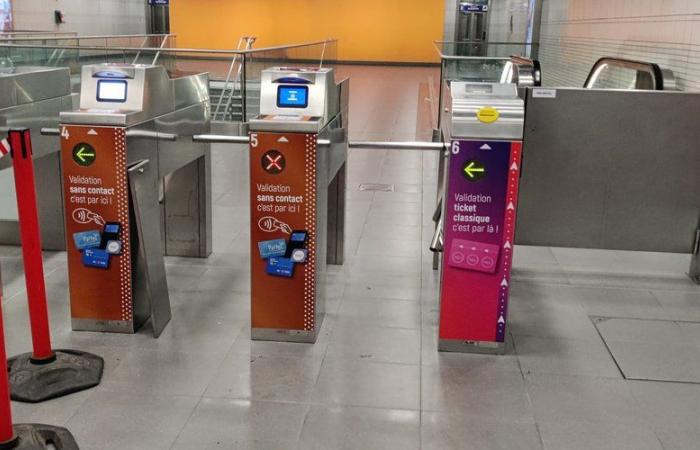
the essential
Since Monday, January 20, Tisséo has begun a major transformation with the gradual installation of contactless validators in all metro stations. The disposable ticket will disappear during the year 2025…
Tisséo is modernizing its ticketing system by replacing its traditional validators with contactless devices. This deployment, planned until the end of March, concerns more than 100 new generation validators. The busiest stations on the network will be equipped last to limit the impact on users. This modernization introduces a new rechargeable ticket, designed to replace disposable paper tickets. More robust and reusable up to 30 times, it works without insertion into the validator, thanks to technology proven in several French cities such as Lille, Rennes and Strasbourg. Travelers will be able to easily reload this ticket and validate in a single gesture by bringing their transport ticket close to the validator target.
Also read:
With the triggering of the pollution alert in Toulouse, Tisséo draws his Planète ticket
For regular travelers using a Pastel card or the mobile application, no changes are expected. As for users opting for validation by bank card, they will benefit from compatible validators across the entire network from the summer. The validators installed on the gates reserved for people with reduced mobility have been specifically designed to meet the needs of these travelers.
Also read:
Public transport: in Toulouse, Tisséo is “preparing for the implementation of the Stop Fraud system” which will make it possible to verify the addresses of offenders
During the transition period, old paper tickets will remain usable on a single validator located to the right of the gates, until May 31, 2025.
Tailor-made support
To guarantee a smooth transition, the public transport network has provided an important information and assistance system. From March 26, old tickets can be exchanged for rechargeable tickets in agencies. This operation will continue until July 31, 2025. At the same time, tutorials, explanatory videos and educational materials will be made available to support users at each stage.
Agents will also be present at the stations to answer travelers’ questions and allow them to easily adapt to this new system. This development is part of a global strategy to modernize public transport and continually improve services.





